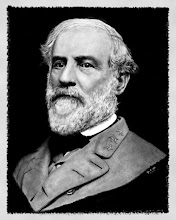What is the gospel? 1 Cor. 15:1-4:
Moreover, brethren, I declare unto you the gospel which I preached unto you, which also ye have received, and wherein ye stand; By which also ye are saved, if ye keep in memory what I preached unto you, unless ye have believed in vain. For I delivered unto you first of all that which I also received, how that Christ died for our sins according to the scriptures; And that he was buried, and that he rose again the third day according to the scriptures:The gospel which one must believe in order to be saved is not that Christ died for sinners in general. Rather the gospel one must believe is particular. He died, Paul said, for our sins. This was the good news by which the people were saved. If Calvinism is true, I cannot preach a personal gospel because I cannot guarantee that such a personal gospel is true. If I tell a man that Christ died for his sins, that he rose again the third day, and that if he should believe and trust in His death and resurrection he should be saved, and the man is non-elect, then I have born a false witness. Christ did not die for that man, though I just claimed he did. Thus, I must not say that Christ died for him, but that Christ died for the elect's sins. You say, "I have never heard anyone say that! You are setting up a straw man!" "Rather than saying 'Christ died for you', which has no biblical warrant, we proclaim instead that 'Christ died and rose again for all those who would believe (John 3:16).'" - Monergism.com [Emphasis original] There is now nothing particular for this man to appropriate for himself. He cannot say, "Oh this is good news that Christ died for my sins in my place and there is now righteousness for me in Him." I have removed from the lost the personal gospel of Jesus Christ.
It is vitally important to understand the justice of God at this point in the discussion. We are not saved by the death of Christ merely because God decided to use a radical means to show His love. Rather, the Scripture teaches that it was the only way for man to be saved. It would be impossible for God to save man without Christ dying. The option is either man dies or Christ dies, there was no plan be. God could not have just determined to save men and been done with it. Christ had to die for every last sin which a man committed for him to be saveable. And the reason for this is the justice of God.
Rom. 3:25-26:
Whom God hath set forth to be a propitiation through faith in his blood, to declare his righteousness for the remission of sins that are past, through the forbearance of God; To declare, I say, at this time his righteousness: that he might be just, and the justifier of him which believeth in Jesus.Matt. 26:39:
And he went a little further, and fell on his face, and prayed, saying, O my Father, if it be possible, let this cup pass from me: nevertheless not as I will, but as thou wilt.Consider this then in its implications. Any man for whom Christ did not die in completeness is unsaveable. We are not talking about unsaveable because the man cannot believe on His own, but unsaveable because God cannot save him. He is no different than a demon for whom Chirst did not die. there is no salvation there, Christ is not an available savior and if he believed, he would go straight to hell anyways. When he rejects Christ, he does not reject eternal life because there was no eternal life to be had. In other words, just as there is no gospel for a demon, for Christ did not die for them, there is no gospel for any man for whom Christ did not die and any person who preaches good news to such a person would be a liar. As Monergism admitted, it must therefore make the gospel no gospel at all because they don't know if the gospel is true or not for the unsaved person they are speaking with. No consistent Calvinist will preach the gospel of Salvation in 1 Cor. 15:1-4 (which was preached to unsaved people and by which they were saved) because Calvinism will not allow that. Again, from Monergism, "Most assuredly my view is that the plain gospel is to be preached to all sinners ---- that Jesus bore the wrath of God on behalf of ANY who are willing to come and embrace the Savior." That, my friends, is not found in the writings of Holy Scripture. It is not the plain gospel.
We have seen up to this point that Limited Atonement changes the gospel. But that is not all. It determines how we pray for the lost. Consider the atonement in light of our prayers as Paul deals with the subject in 1 Tim. 2:1-6:
I exhort therefore, that, first of all, supplications, prayers, intercessions, and giving of thanks, be made for all men; For kings, and for all that are in authority; that we may lead a quiet and peaceable life in all godliness and honesty. For this is good and acceptable in the sight of God our Saviour; Who will have all men to be saved, and to come unto the knowledge of the truth. For there is one God, and one mediator between God and men, the man Christ Jesus; Who gave himself a ransom for all, to be testified in due time.Paul commands prayer for all men. Why? Because God desires that all men be saved. How do we know that God has this desire? Christ gave himself a ransom for all. Thus our prayers, if they are to be after the heart of God, must be informed by the truth of the desire of God for the salvation of all, and His death for all. In Calvinism, God does not die for the non-elect, but merely damns them to hell. He does not desire their salvation, or else He would have died for them and then they would be saved.Thus the clavinist must change this passage. We pray not for all men, but all sorts of men. Christ does not desire the salvation of all men, but the salvation of all sorts of men. Christ did not give himself a ransom for al lmen, but a ransom for all sorts of men. Consider:
Fifth, we do not mean to suggest that passages such as 1 Timothy 2:4 (God "... desires all men to be saved ...") or 2 Peter 3:9 (the Lord is "... not wishing for any to perish but for all to come to repentance ...") teach that God wants all men to be saved. While we certainly agree that God's preceptive will is pleased with human faith, obedience and repentance, and that God's anger is aroused by man's unbelief, disobedience and unrepentance—nevertheless, exegetically, neither of these verses will bear a universal interpretation.
1 Timothy 2:4 says that, because God "desires for all men to be saved", Christ therefore "gave Himself as a ransom for all". Unless you are willing either to deny Particular Redemption, or to ignore the context of 1 Timothy 2:4, there is no sensible way to exegete the passage to mean that God desires the salvation of the non-elect.
The Greek word translated "all" frequently means "all sorts of" or "all categories of" rather than all without exception. In context, Paul clearly has in mind all ranks of men (see verses 1 and 2, where he gives as an example of "all men" kings and "all who are in authority"), and all nations of men (see verse 7, where he affirms that he is "a teacher of the Gentiles"). 1 Timothy 2:4 teaches us that God has chosen men of all ranks and nations of men. This gives us encouragement to take the gospel to all men, regardless of their status or nationality, confident that God has His elect people among all classes of men.
Likewise, 2 Peter 3:9 is set in the context of God's patience toward "you"—"The Lord is not slow about His promise, as some count slowness, but is patient toward you, not wishing for any to perish but for all to come to repentance." In context, Peter draws a profound contrast between "you" believers and certain mockers who would come in the last days, whom Peter repeatedly refers to as "they" and "their" (vss. 3-7). He affirms that the present heavens and earth are being reserved for fire, for the day of judgment and destruction of these ungodly men (vs. 7). In contrast, he says that the Lord "is patient toward you, not wishing for any to perish, but for all to come to repentance." His patience is not for the sake of all men, but for all of you. It certainly is not for the sake of those ungodly men for whom the heavens and earth are reserved for judgment and destruction. - Removing the Doctrinal Obstacles to Calvinistic Evangelism, Mitch CervinkaThus we find that Calvinism effects even the way we pray. It effects the way we interpret the command to pray. Consider the last paragraph above. He argues that God's patience is not for all men, but the elect only. Is that what the Scripture teaches?
And thinkest thou this, O man, that judgest them which do such things, and doest the same, that thou shalt escape the judgment of God? Or despisest thou the riches of his goodness and forbearance and longsuffering; not knowing that the goodness of God leadeth thee to repentance? But after thy hardness and impenitent heart treasurest up unto thyself wrath against the day of wrath and revelation of the righteous judgment of God; Who will render to every man according to his deeds. - Rom. 2:3-6Paul maintains that the patience of God and the goodness of God in reference to the non-elect is meant to lead them to repentance, but their rejection of it stores up for them wrath against the day of wrath. Again, we find in Ezekiel:
Therefore I will judge you, O house of Israel, every one according to his ways, saith the Lord GOD. Repent, and turn yourselves from all your transgressions; so iniquity shall not be your ruin. Cast away from you all your transgressions, whereby ye have transgressed; and make you a new heart and a new spirit: for why will ye die, O house of Israel? For I have no pleasure in the death of him that dieth, saith the Lord GOD: wherefore turn yourselves, and live ye. - Eze. 18:30-32
Say unto them, As I live, saith the Lord GOD, I have no pleasure in the death of the wicked; but that the wicked turn from his way and live: turn ye, turn ye from your evil ways; for why will ye die, O house of Israel? - Eze. 33:11While Calvinism refuses to accept a view of God in which He desires that the wicked repent and live, a biblical view of the atonement allows and embraces such a view, while recognizing the particular redemptive love that God placed on those who were not destined to wrath but to obtain eternal life (1 Thess. 5:9).
In conclusion, Limited Atonement is not supportable by the whole of Scripture, it fails to understand the purposes of the death of Christ, it changes the gospel from a personal one to one which is so impersonal that it has no good news to offer, it denies the heart of God for lost sinners which would cause Christ to weep over the lost and say He would have gathered them but they would not come, and it changes our vary prayers and attitude for the non-elect from what God commands of us.
My friends, weep over the lost who are dying and going to hell. Did not Christ do the same? If God loved the non-elect such that even though they would die in their sins, He still gave His son of them, how much more fervent should our prayers and preaching be than it currently is? Oh that the love of God would be poured out upon the church and that being full of the Spirit we would preach the good news of personal redemption to a lost and dying world!
End of Part 7. In part 8, I will look briefly at Irresistible Grace, and the Perseverance and Preservation of the Saints. I believe that shall be my last post on this subject, but seeing as I haven't begun my work on it, it may stretch to two posts.










































+copy.jpg)